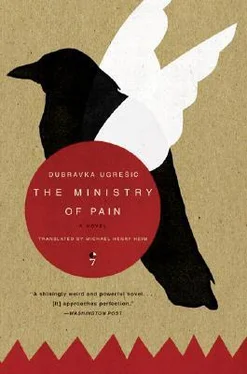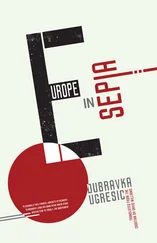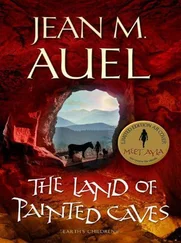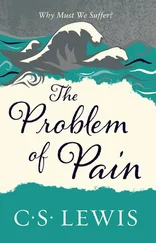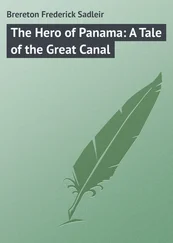The blow that had recently hit me in the solar plexus had undergone a long and complicated journey, passing through any number of mediators and media until, mediated for the umpteenth time, it turned up in the form of — Juliette Binoche. Binoche was the last in the line of transmitters, the one who translated my personal pain into my language. At the perfect moment. Because at a different time her translation might have been gibberish. At that and only that moment Kaufman’s images, much like the ideal Coca-Cola commercial, were able to launch a sudden subliminal attack on me, and I totally fell apart.
Even though I felt the only story I had a proper copyright on was the “Yugoslav story,” at that moment all stories were mine. I wept in my innermost being over the imaginary tangled web that bore the arbitrary label of Eastern, Central, East-Central, Southeastern Europe, the other Europe. I couldn’t keep them straight: the millions of Russians who had disappeared into Stalin’s camps, the millions who had perished in the Second World War, but also the ones who had occupied the Czechs and the Czechs who were occupied by the Russians and the Hungarians (they too occupied by the Russians) and the Bulgarians who fed the Russians and the Poles and the Romanians and the former Yugoslavs, who basically occupied themselves. I was beating my head against the wall of a generalized human loss. Like a Balkan keener I wailed my agony over one and all, only my agony was mute. I grieved for the Zagreb, Sarajevo, Belgrade, Budapest, Sofia, Bucharest, and Skopje facades that were coming down. I was touched by the endearingly bad taste of a chocolate wrapper of my youth (to say nothing of the literal bad taste of the chocolate), I bemoaned the swatch of a melody that happened to ring in my ear, a face that emerged at random from the darkness, a sound, a tone of voice, a line of verse, a slogan, smell, or scene. There I sat, staring into the landscape of human loss and weeping my heart out. I even shed a tear for Kaufman’s trick shots, which had after all brought my feelings to a head, and another for my celluloid Binoche.
Then I thought of my students. They would be moved by the same landscape. The problem was, their metamorphosis had only the scantest chance of success: they were a second too late, a fraction of a second. No, their metamorphosis would end in failure. I could sense it in their internalized stoop, in the hint of gloom in their eyes, the invisible slap on their faces, the lump of vague resentment in their throats.
Any minute now, any second, a new, completely different tribe will arise from the post-Communist underbrush bearing doctoral dissertations with telling titles like “Understanding the Past as a Means of Looking Ahead.” They will be the children of Tomáš and Tereza, who returned to Czechoslovakia only to die there, because returning spells death and remaining spells defeat. They will be the orphans of Tomáš and Tereza. They will set out on their run like salmon, but other times mean other streams and other fellow travelers, people who really are “looking ahead” and who will no longer “understand the past” or at least not in the same way. And these new team players from the “gray backwaters” of Mongolia, Romania, Slovakia, Hungary, Croatia, Serbia, Albania, Bulgaria, Belarus, Moldavia, Latvia, and Lithuania, these transition mutants will storm European and American universities and finally learn what needs learning. They will form a vibrant young contingent of specialists, organizers, operators and, above all, managers, experts in business management, political management, ecological management, cultural management, disaster management — the management of life. They will be a genus that propagates itself with inhuman rapidity, as if propagation were their sole aim in life. They are the type that always lands on its feet, that has no qualms about living off the misfortunes of the people they help, because even misfortune needs to
be managed: misfortune without management is merely failure. They are the people who will look after the disabled in Bulgaria, Bosnia, Belarus, Moldavia, and Romania; of the orphans in Bosnia, Georgia, Tajikistan, Kazakhstan, Chechnya, Kosovo, Azerbaijan, and Armenia; of the minorities in Europe and the Roma everywhere; of sex professionals and victims of the white, black, and yellow slave trade; of refugees, emigrants, immigrants, and migrants; of the homeless. They are mutants who will be as efficient as laboratory viruses in spreading, spreading their nets and networks, their umbrellas and umbrella organizations, their centers, their links. They will become the heads of audiovisual and telecommunications departments, the net and web people. They will be the self-confident designers of their own careers and of the lives of others. They will be deep thinkers, voracious readers, and consummate stylists. They will have multiple identities: they will be cosmopolitan, global, multicultural, nationalistic, ethnic, and diasporic all in one. They will wear any number of hats and be flexible in the extreme, ever ready to define and refine themselves, reflect and deflect themselves, invent and reinvent themselves, construct and deconstruct themselves. They will be the champions of democracy in these transitional times, and since everything is and has always been in a state of flux the words mobility and fluidity will be like chewing gum in their mouths. They will be progressive and aggressively young, the well-paid commissars of European integration and enlargement , the harbingers of the new world order, the creators of unique postnational political units , of new national and postnational constellations , advocates of globalization as opposed to localization and vice versa, advocates, zealous advocates of whatever happens to be in need of advocating. Born in the Ukrainian hinterland, they will study medieval history in Kiev, English business terminology in Birmingham, and write dissertations on “What Medieval History
and Business Terminology Have in Common.” They will flock from Vilnius to Warwick to learn about micro- and macroeconomics, to specialize in good governance and sustainable peace in war-torn societies . They will come from Voronezh, Kaunas, Timişoara and Pécs to work for NGOs, the EU, the UNHCR. They will come from Ulan Bator with MBAs to study modeling policy instruments . They will come from Yerevan, from Alma Ata, from Veliko Tŭrnovo, from Tashkent and Varna and Minsk to become the leaders and future elite in a unified Europe . They will come from Iaşi in Romania and Ruse in Bulgaria and Tetov in Macedonia with doctorates in pastoral Orthodox theology in their pockets, spend a few years in Fribourg studying international relations, join think tanks in Salonika, Boston, and Prague, and hold a series of handsomely remunerated briefing sessions in a Romanian, Bulgarian, or Lithuanian institute on the topic of Euro-Atlantic integration and the politics of defense, flaunting their rampant bastardization. They will be linguistically gifted, speaking several languages and creating a Eurospeak of their own, peppering it with personal coinages. They will always write the word Enlargement with a capital E , because for them it heralds a new era, a new humanism, Renaissance, and Enlightenment rolled into one. Their buzzwords will be management, negotiation technology, income, profit, investment, expenses, hidden communication , and the like. Quick to position themselves, forever with an eye to the main chance, resilient as the proverbial cat with nine lives, they will be hardworking, communicative, loyal, discreet, tolerant, friendly , and skillful in coping with stressful situations . They will show a special interest in diplomatic privileges . They will come from Samara after short stints in Coca-Cola Samara and Samara Light and Power and enroll in the Fletcher School of Law and Diplomacy and the Mediterranean Academy of Diplomatic Studies. They will spice up their applications with phrases like Challenge is my propeller and Perfection is my ulti
Читать дальше
